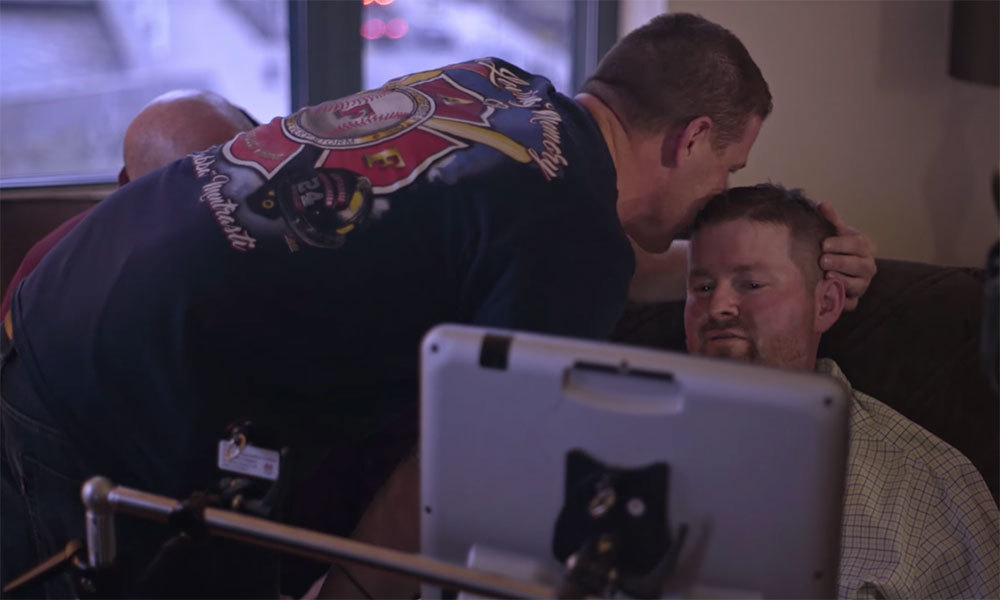
How the ALS Association Gave an Ice Bucket Challenge Creator His Voice Back
The association's Project Revoice leveraged technology to revive the voice of Ice Bucket Challenge cofounder Pat Quinn. The group plans to bring the voice-sampling tool to other ALS patients later this year.
The ALS Association gained a lot from the Ice Bucket Challenge. Now it’s giving something back to a founder of that iconic campaign—his voice.
Earlier this month, the association revealed that it had taken steps to give Pat Quinn, one of the men credited with creating the 2014 viral phenomenon, the ability to speak once again, through a technology called “voice banking,” in which a person’s speaking style is re-created based on a few hours of his or her recorded speech. Quinn, who was diagnosed with amyotrophic lateral sclerosis in 2013, is the first person helped by Project Revoice, which used samples from his many 2014 media interviews about the Ice Bucket Challenge to “clone” his voice.
Previously, Quinn used the computerized voice of a text-to-speech tool after he lost his ability to speak last year. The Project Revoice technology, created by the Canadian company Lyrebird, now allows him to communicate in a voice that matches his own.
“This takes speech tech to a whole new level and means everything to how I communicate,” Quinn said in a news release. “I really didn’t like to hear my old computer voice, so I often avoided getting involved in conversations. This technology gives me back a vital piece of myself that was missing.”
The technology is more sophisticated than other programs, which require many weeks’ worth of audio recordings to build a voice sample. Lyrebird gets similar results with just a few hours of voice samples, the ALS Association said.
According to Brian Frederick, executive vice president for communications, the association is making the tool available to other ALS patients—initially, those who speak English, with a focus on those with American accents, but it hopes to include other languages and accents in the future.
“Our next step is to build this into a program to ensure that people with ALS can maintain that unique part of themselves—their voice—even after they lose the ability to speak,” Frederick said. “This amazing new technology will make it much easier and quicker for people with ALS to record their voices so they can later be re-created.”
While Project Revoice is months out from wide release (it will be available to patients at no cost), the association and its partners are encouraging ALS patients to start recording voice samples now, due to the disease’s unpredictability.
Ice Bucket Challenge cofounder Pat Quinn, shown right. (YouTube screenshot)






Comments